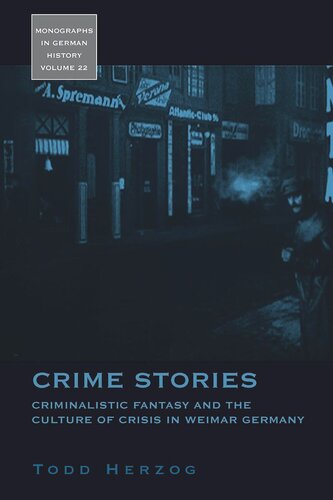

Most ebook files are in PDF format, so you can easily read them using various software such as Foxit Reader or directly on the Google Chrome browser.
Some ebook files are released by publishers in other formats such as .awz, .mobi, .epub, .fb2, etc. You may need to install specific software to read these formats on mobile/PC, such as Calibre.
Please read the tutorial at this link: https://ebookbell.com/faq
We offer FREE conversion to the popular formats you request; however, this may take some time. Therefore, right after payment, please email us, and we will try to provide the service as quickly as possible.
For some exceptional file formats or broken links (if any), please refrain from opening any disputes. Instead, email us first, and we will try to assist within a maximum of 6 hours.
EbookBell Team

4.4
32 reviewsThe Weimar Republic (1918–1933) was a crucial moment not only in German history but also in the history of both crime fiction and criminal science. This study approaches the period from a unique perspective - investigating the most notorious criminals of the time and the public’s reaction to their crimes. The author argues that the development of a new type of crime fiction during this period - which turned literary tradition on its head by focusing on the criminal and abandoning faith in the powers of the rational detective - is intricately related to new ways of understanding criminality among professionals in the fields of law, criminology, and police science. Considering Weimar Germany not only as a culture in crisis (the standard view in both popular and scholarly studies), but also as a culture of crisis, the author explores the ways in which crime and crisis became the foundation of the Republic’s self-definition. An interdisciplinary cultural studies project, this book insightfully combines history, sociology, literary studies, and film studies to investigate a topic that cuts across all of these disciplines.